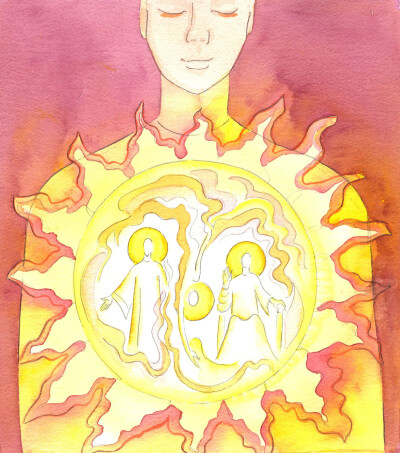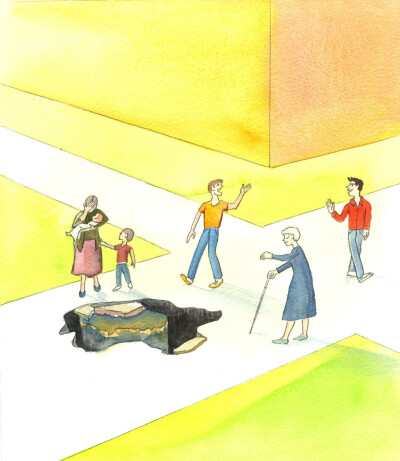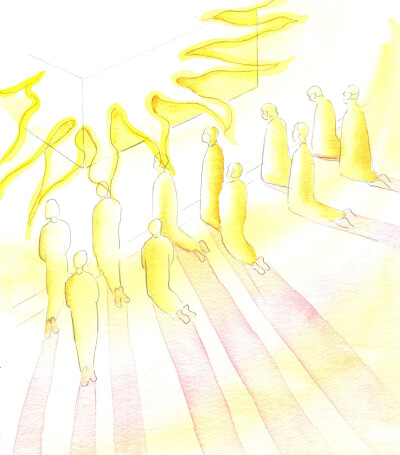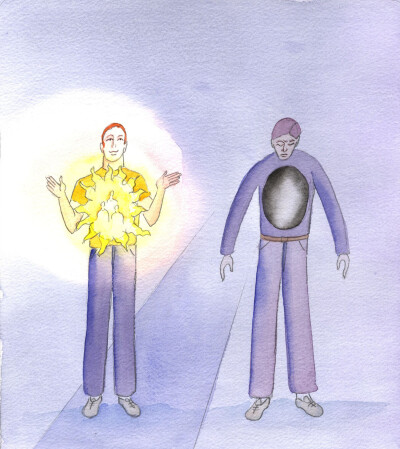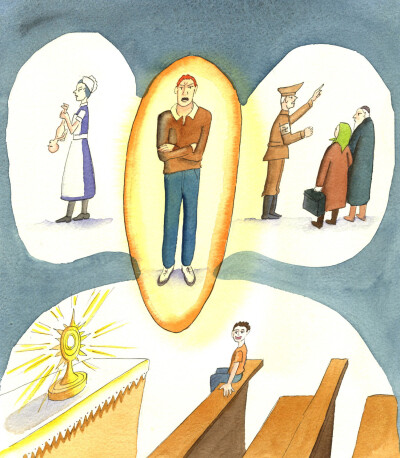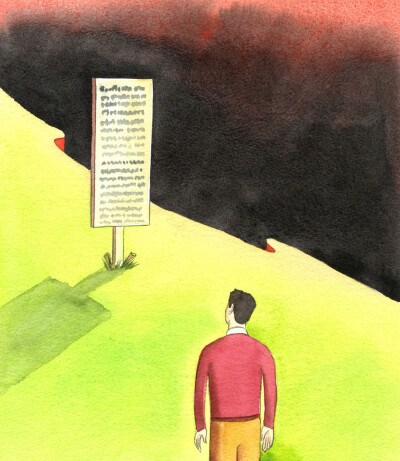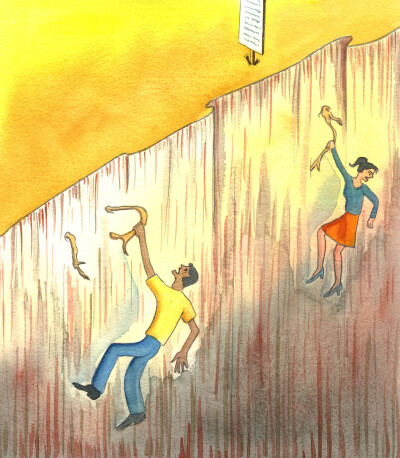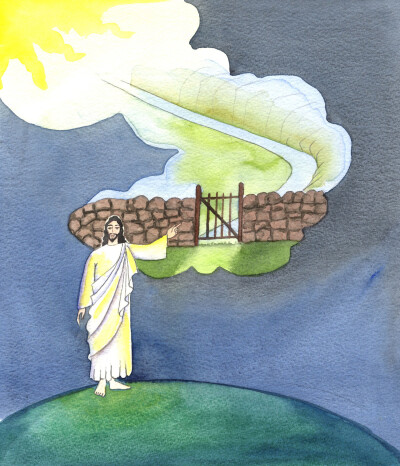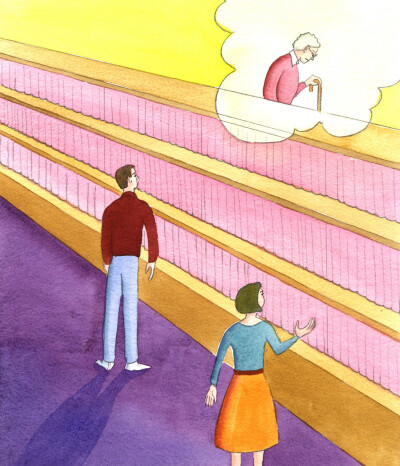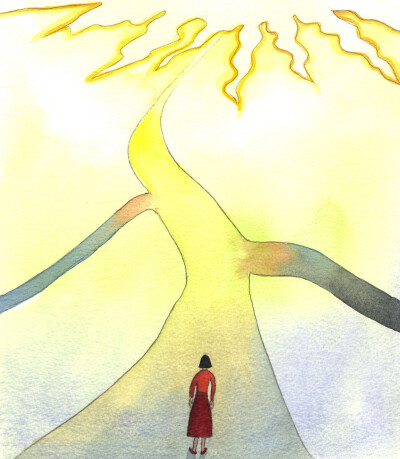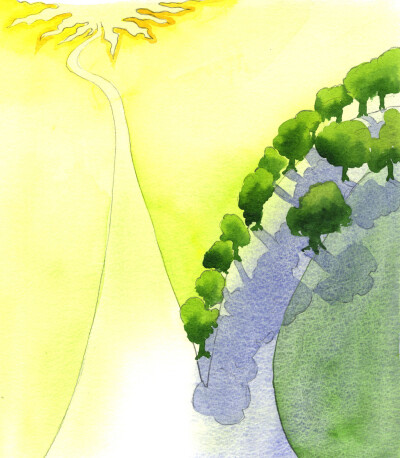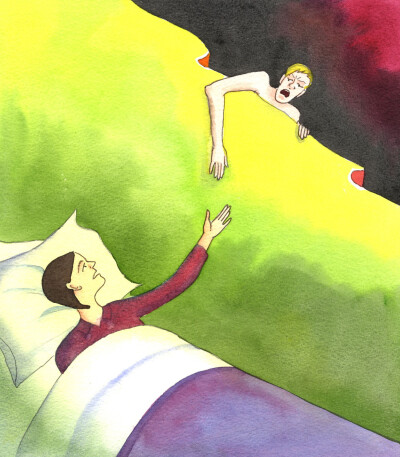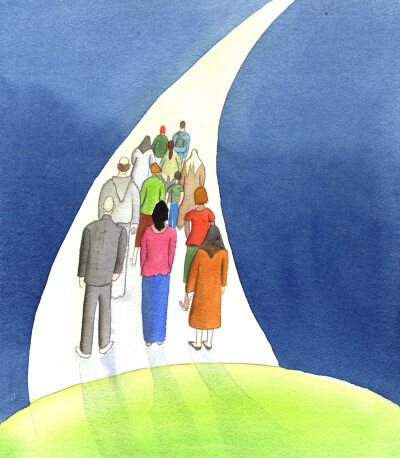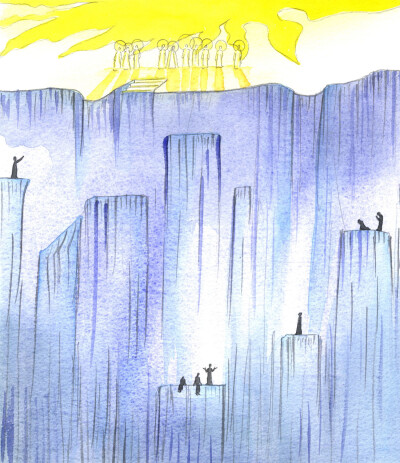Search Page
Showing 1141 - 1160 of 1372
A Christian in a state of grace is intimately united with the Triune God. By Baptism, all sin is washed away from the soul, the person is made a member of the Church; Baptism brings the life of God to shine within the soul through the presence there of the Blessed Trinity: called the Divine Indwelling. No longer need people go to a special Temple in order to pray - though we have churches for our public worship as the Body of Christ: consecrated places where Christ is Really Present, in the tabernacle, in the Blessed Sacrament.
Just as the land which is not watered by spring rains becomes dry, causing subsidence and dangerous lesions in the road, so a spiritual life not fed by the sacraments becomes weak. Those most likely to fall into the pit are those preoccupied by earthly troubles, those careless in their everyday life, and those unable to go to church who sink into depression or despair.
Those who adore the Lamb, on earth, in sincere devotion, will do so in Heaven, if they persevere to the end. But those who do not adore Christ, here on earth, will not adore Him, close by Him, in Heaven - unless they repent and are changed before they die.
It is a marvel of grace, that the Blessed Trinity is present within the soul of a Baptised person. That person shares God's life, and power, and joy and peace. Yet God's presence is light as well as life. There is nothing worse than to extinguish that light, by deliberate mortal sin. If we die in such a state, we are doomed to an Eternity without God.
Carelessness can be the first step on a path that leads to terrible results. Carelessness about life leads to the deaths of innocent babies by abortion. Carelessness about our neighbour's welfare leads to silence when they are harmed by an evil regime. Carelessness in catechesis can lead to gross irreverence towards Christ our God and Saviour, and to uncharity towards the neighbour who prays - and even to carelessness about the moral law, and about sin and death.
People urge us to live in fear of global warming or disease, and expect us to make huge sacrifices for their causes. Yet if Christians urge people to change the sinful behaviour that plainly damages their lives, their families, and society, they are accused of not respecting the freedom and diversity of their fellow creatures!
Whenever we make new efforts to be more attentive to Christ's wishes, and more vigilant about our sins and failings, we come to prayer in a new closeness to Christ; even if we neither see nor feel this, it's as if the 'wall' that seems to separate Heaven from earth has been torn open, and Christ gazes down with joy and gratitude, because He is loved.
God can work wonders through our perseverance. When a priest, or any sincere follower of Christ, finds it hard to believe in the saving power of the Cross, and sees life as a grim progress with little hope, he should reflect on this truth: whoever imitates Christ and accepts the Cross, in patience, finds that, little by little, it becomes a living thing, fruitful, putting out new branches and leaves, precisely because that person is reproducing Christ's life, and being fruitful in saving souls.
There are tragic consequences when people misunderstand the word 'ecumenism'. Some Catholics suppose that they can go where they choose, for Sunday worship; yet whenever a minister without valid orders presides at a service, Christ is not made sacramentally Present. No Catholic should miss Mass, by choosing non-Catholic prayer instead.
To approach death is akin to arriving at the edge of the Abyss, and seeing a notice which lists the mortal sins that can cause us to fall over the edge. How important it is to repent before we die! What are those sins? - The Church tells us. Her teachings are true, since Christ founded her, and said, "Whoever hears you, hears Me."
There are people who repeat the truth about mortal sin, insisting that it is only mortal if it was committed with full knowledge and content. But this is not to say that people are blameless for their ignorance about certain sins, for example. In unclear cases, it's as if people have been saved from spiritual death but are still in need of help if they are to lead holy lives, close to Christ. It's as if they hold onto tree-roots, above the Abyss.
The Gospel brings joy, to those who repent and change. There are Catholics who believe that niceness is enough, and that mortal sins are unimportant. Jesus spoke the truth about sin and salvation when He said: "It is a narrow gate, and a hard road, that lead to life; and few there are that find it." It is important that we shun all temptations, and all 'occasions of sin'.
Grandparents and parents should receive regular care. Though people might rely on a whim, or a mood, when they choose a book from a bookshelf, that is wholly the wrong attitude to have when choosing what to do each day. It is one of our basic duties to care for our families, and to help others if we can. We should not wait until we feel in a good mood.
After every Confession, every new start on our spiritual journey, we ought to move straight ahead, on the Way to greater sanctity. This means we should fix our eyes on Christ; with His help in the sacraments and in prayer we can avoid those routes which lead only to sin, in alienation from God, here and in eternity.
If we had a huge barn, that was full to the top with our sins, but then we confessed them sincerely, in the Sacrament of Penance, and received absolution, we could be certain that our sins are entirely banished, and that barn empty. Then our souls would be beautiful, giving joy to Christ, and hope to ourselves.
We need to pray for ourselves, and for others. We must remember that a simple choice lies before each of us, whether to follow the Way that leads to life: Christ's Way - or to follow the other fork in the road, into a dark path that leads downwards, amongst trees, where people try to hide their sins from God. Only one Way leads towards Heaven.
Amazing results can spring from generous acts and prayers, in union with Christ our Saviour. Through every act of freely-borne penance, or patience in pain, it's as if we can reach out, in Christ, to draw people back from the edge of the Abyss: people who are trapped in unrepented sin, or who have terrible problems and weak faith. None of our sufferings need be wasted.
The people in the picture are on the way to Heaven because they have recognised the truth about Christ and have followed Him. He is unique, among the Founders of all religions, in that He was conceived of a virgin, claimed to be one with the Father, and proved His Origin and Divine Sonship by rising from the dead after enduring a cruel death.
The Mass is unique because the One Who gave it to us, Christ, is unique, amongst founders of world religions. He was conceived of a virgin, claimed to be one with God the Father, proved His Origin by the healings of the sick, raising the dead to life, calming a storm - and by His rising-up from the grave, after being unjustly and cruelly put to death.
Some Catholics believe that Purgatory is no more than a peaceful ante-room before Heaven. There are deep caverns of Purgatory, however, where those who led sinful lives but were saved at the last moment by the Last Sacraments are permitted by our merciful God to do the penance they failed to do on earth. They enter Heaven, later on, in humility and gratitude.
Showing 1141 - 1160 of 1372

